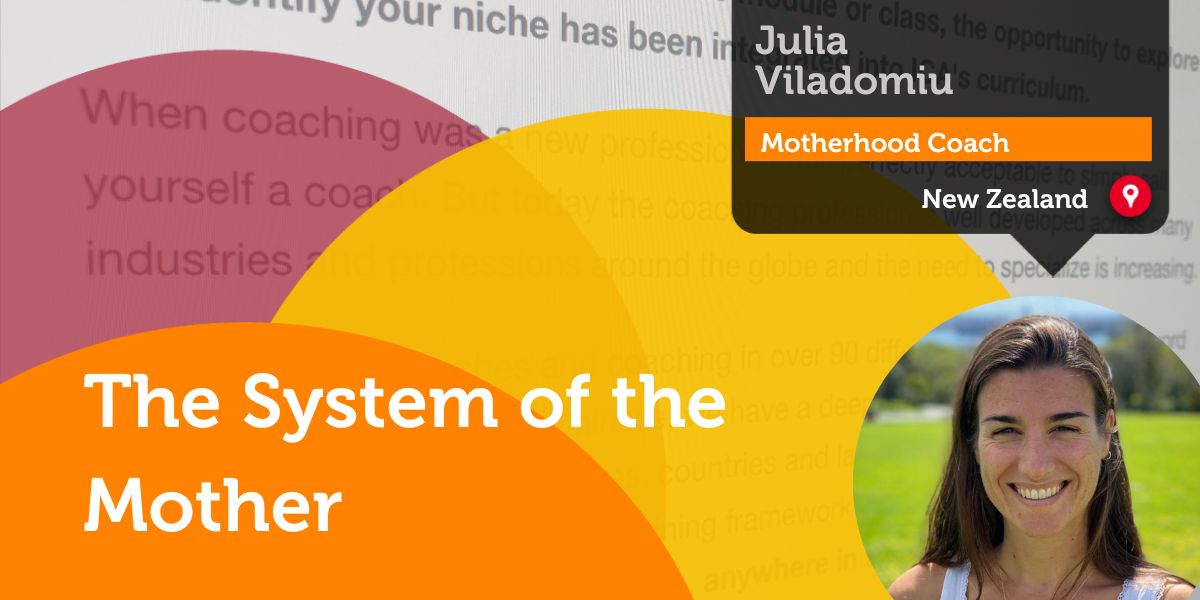A Research Paper By ICA Graduate and Motherhood Coach, Julia Viladomiu
Julia Viladomiu is a certified coach from New Zealand with over 15 years of experience in the education field. She has a passion for working with children and has become a dedicated professional in this area. Julia is also a mother of two and her experience in parenting has led her to discover a new interest in how becoming a mother impacts a woman’s development as an individual, professional, and mother.

The primary focus of Julia's Research Paper is on understanding the relationship between mother and child and how it fits into the larger family system. She notes that her curiosity has been triggered by the influence of the family and environment on the child's behavior, learning, and empathy skills.
Working as a primary school teacher, Julia conducted interviews with parents which were equally beneficial for both parties. Not only did the parents gain insights into their child's behavior and learning but it also helped Julia to construct hypotheses about the child's behavior and learning patterns. These interviews also led Julia to deeper conversations with parents about their struggles with parenting and how these limitations affect the rest of the family, particularly the children.
With her teaching experience and now with a coaching certification from International Coach Academy on board, Julia has decided to focus on working with women who feel stuck and lost after motherhood. Julia's hypothesis is that an infant can benefit from a coaching relationship with their mother. To explore this hypothesis, Julia will focus on the relationship between mother and child as a microsystem, the child, and the mother.
Julia uses the framework of systemic pedagogy, which focuses on the family, community, and cultural expressions, to understand the behaviors and skills of the child. Systemic pedagogy tries to integrate parents into the education of their children by creating a link between family and school. Children take on the behavior of their parents, just as their parents took on the behavior patterns of their parents. Therefore, teachers need to have some knowledge of the generations that have preceded the child. The framework of systemic pedagogy helps to understand that what appears to be happening to just one member of the system, has an impact on the whole group. This also applies to the microsystem of the relationship between mother and child.
Julia also references the research on the importance of bonding between a mother and child, and the impact it has on the child's development. According to Dr. Robert Winston, a specialist on early bonding and child development, "Infancy is a crucial time for brain development. It is vital that babies and their parents are supported during this time to promote attachment. Without a good initial bond, children are less likely to grow up to become happy, independent, and resilient adults." The research also shows that children under the age of 7 are building their fundamental values and personality.
Furthermore, Julia also draws on the studies of Rudolph Steiner and his philosophy of anthroposophy to understand the impact of the mother-child relationship on the child's development. Steiner's philosophy emphasizes the importance of the first seven years of a child's life in shaping their fundamental values and personality. Julia believes that by understanding the relationship between mother and child as a microsystem, the child, and the mother, she can provide answers to her hypothesis that an infant can benefit from a coaching relationship with their mother.
About Julia
Program: Professional Certified Coach Program
LinkedIn: in/julia-viladomiu-754a966b/